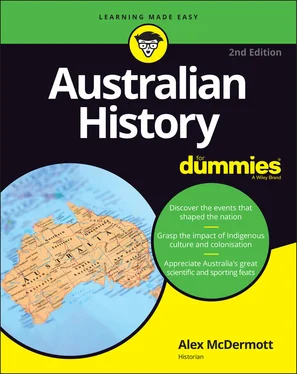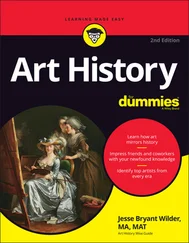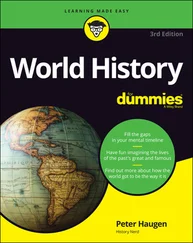When three ex-convict entrepreneurs (Lord, Kable and James Underwood) sent Bligh a (relatively mild) protest letter, he jailed them. Bligh declared the letter insulting.
Then Bligh started threatening Sydney residents with eviction, because he wished to do with the town layout what he was trying to do with the economy — push it back to Phillip’s period. Bligh didn’t like the colonial mess he was being confronted with, and he certainly didn’t like the sprawling, mercantile shanty metropolis of Sydney that had just grown up without, as he put it, ‘any particular design’.
 The mess that was Sydney was actually the source of the colony’s greatest strength. No strictly military area of the settlement, no ex-convicts ghetto and no free settlers area existed, and only one convict jail to restrict convicts to was established. On the land and in the town, convicts lived with settlers, both free and emancipated.
The mess that was Sydney was actually the source of the colony’s greatest strength. No strictly military area of the settlement, no ex-convicts ghetto and no free settlers area existed, and only one convict jail to restrict convicts to was established. On the land and in the town, convicts lived with settlers, both free and emancipated.
Bligh launched a campaign against colonial disorder. He had ‘plans which I had formed for the improvement of the town’, and put the fear in people badly by telling them colonial leases may have no legal meaning.
 In trying to implement his reforms, Bligh wasn’t helped by his own language and demeanour. He reacted badly to being questioned or disagreed with. When someone brought up the laws of England, he exploded: ‘Damn your laws of England! Don’t talk to me of your laws of England: I will make laws for this colony, and every wretch of you … shall be governed by them; or there [pointing to the jail] is your habitation!’
In trying to implement his reforms, Bligh wasn’t helped by his own language and demeanour. He reacted badly to being questioned or disagreed with. When someone brought up the laws of England, he exploded: ‘Damn your laws of England! Don’t talk to me of your laws of England: I will make laws for this colony, and every wretch of you … shall be governed by them; or there [pointing to the jail] is your habitation!’
It’s hard to find a historian who doesn’t take sides on Bligh, on whether he was either:
A noble but misunderstood, valiant governor trying his best to get rid of that pernicious officer trade cartel, and help out the little guy
A serial buffoon given to violent threats and outbursts who managed the almost impossible — uniting all the warring factions and overcoming the seething animosities that Sydney was riven with, by bringing everyone (soldiers, ex-cons, officers, traders, house owners and renters) together against him
Either way, it’s impossible to ignore the one really big event of his tenure, and the only violent overthrow of established government in Australia’s history — known (since the 1850s) as the Rum Rebellion.
Soldiers and common populace join forces
The 20th anniversary of NSW’s first settlement (26 January 1808) saw the majority of the population uniting as one — to arrest their own governor! At the desperate urging of ex-officer John Macarthur (who had just escaped from being jailed by Bligh), Major George Johnston led his detachment of the NSW Corps to Government House where Bligh lived. After a few hours of searching and ransacking the house high and low, the marines found and arrested Bligh.
That night bonfires were lit, people got drunk and it was difficult to find anyone in Sydney who didn’t think that the arrest of the blustering, unpredictable governor was a very good idea indeed. And if they didn’t like the idea, they (understandably) stayed fairly quiet.
Most historians will tell you that the arrest of Bligh by the NSW Corps was all about the big players — bold, bad Bligh versus Macarthur. And so on. Some have described Johnston as a ‘puppet’ of Macarthur who did his bidding in arresting Bligh.
But the real cause of the Rum Rebellion is to be found in the fact that the ordinary soldiers and common people of Sydney had become utterly meshed with each other, to the extent that the soldiers couldn’t be relied upon to do the Governor’s bidding. In a functional sense they formed a common interest.
If Johnston was a puppet it wasn’t of Macarthur, but of the common soldiers and ordinary populace.
 The soldiers who deposed Bligh were in day-to-day life practically indistinguishable from the ex-convicts in both social and economic background. Most of them had been in NSW since the early 1790s. They had married or entered into de facto relationships with convict women, had children, set up businesses and established farms. The NSW Corps had ‘gone native’ in the 18 years or so since its first formation and arrival. The Corps was no longer a reliable arm of the Crown and could no longer be trusted to impose the British Government’s will on the local population.
The soldiers who deposed Bligh were in day-to-day life practically indistinguishable from the ex-convicts in both social and economic background. Most of them had been in NSW since the early 1790s. They had married or entered into de facto relationships with convict women, had children, set up businesses and established farms. The NSW Corps had ‘gone native’ in the 18 years or so since its first formation and arrival. The Corps was no longer a reliable arm of the Crown and could no longer be trusted to impose the British Government’s will on the local population.
 Major George Johnston, at his trial for mutiny in England three years later, explained how the NSW Corps was inextricably involved with the people of Sydney: ‘The soldiers are not at Sydney kept in a state of separation from the people, but mix, marry and live among them, and are in all respects identified with them. They hear their grievances, and would with infinite difficulty, if at all, in a matter of great public concern, be brought to act against them’.
Major George Johnston, at his trial for mutiny in England three years later, explained how the NSW Corps was inextricably involved with the people of Sydney: ‘The soldiers are not at Sydney kept in a state of separation from the people, but mix, marry and live among them, and are in all respects identified with them. They hear their grievances, and would with infinite difficulty, if at all, in a matter of great public concern, be brought to act against them’.
Sorting out fact from legend
The name ‘Rum Rebellion’ actually does more to confuse than clarify understanding of what actually happened. Rum had little to do with it, and the notorious ‘rum monopoly’ that the officers of the NSW Corps had established in the colony had been dismantled ten years previously (refer to the section ‘ Ending the trading monopoly game’ earlier in this chapter for more on this).
And neither was the disturbance a rebellion, or mutiny, even though that’s what the British Government decided to call it when they put Johnston, one of the rebellion’s leaders, on trial for mutiny. Rather, it was a revolt, supported by almost the entire township of Sydney — soldiers, convicts, ex-convicts alike — by those down on the low rungs of the social ladder as well as just about all the established entrepreneurs and businesspeople in the colony who weren’t working for Bligh directly as officials.
Chapter 5
A Nation of Second Chances
IN THIS CHAPTER
 Envisioning a new purpose for NSW: Governor Macquarie
Envisioning a new purpose for NSW: Governor Macquarie
 Understanding Macquarie’s main areas of reform
Understanding Macquarie’s main areas of reform
 Dealing with the consequences of the Macquarie regime
Dealing with the consequences of the Macquarie regime
 Taking a battering from outside forces
Taking a battering from outside forces
 Attempting to fix it all with one Bigge inspector
Attempting to fix it all with one Bigge inspector
 Returning to England in disgrace but leaving a legacy
Returning to England in disgrace but leaving a legacy
Within 20 years of the establishment of NSW as a colony, it had become a place of second chances — a place where people who had made a mess of their lives in Britain could wipe the slate clean and start again. For convicts, this was the reality of the colonial world that they’d been living in almost since 1788 — ever since the first few nightmarish starvation years — but this wasn’t what the Colonial Office, and most of the powerful people in Britain, wanted the colony to be.
Читать дальше

 The mess that was Sydney was actually the source of the colony’s greatest strength. No strictly military area of the settlement, no ex-convicts ghetto and no free settlers area existed, and only one convict jail to restrict convicts to was established. On the land and in the town, convicts lived with settlers, both free and emancipated.
The mess that was Sydney was actually the source of the colony’s greatest strength. No strictly military area of the settlement, no ex-convicts ghetto and no free settlers area existed, and only one convict jail to restrict convicts to was established. On the land and in the town, convicts lived with settlers, both free and emancipated. In trying to implement his reforms, Bligh wasn’t helped by his own language and demeanour. He reacted badly to being questioned or disagreed with. When someone brought up the laws of England, he exploded: ‘Damn your laws of England! Don’t talk to me of your laws of England: I will make laws for this colony, and every wretch of you … shall be governed by them; or there [pointing to the jail] is your habitation!’
In trying to implement his reforms, Bligh wasn’t helped by his own language and demeanour. He reacted badly to being questioned or disagreed with. When someone brought up the laws of England, he exploded: ‘Damn your laws of England! Don’t talk to me of your laws of England: I will make laws for this colony, and every wretch of you … shall be governed by them; or there [pointing to the jail] is your habitation!’ The soldiers who deposed Bligh were in day-to-day life practically indistinguishable from the ex-convicts in both social and economic background. Most of them had been in NSW since the early 1790s. They had married or entered into de facto relationships with convict women, had children, set up businesses and established farms. The NSW Corps had ‘gone native’ in the 18 years or so since its first formation and arrival. The Corps was no longer a reliable arm of the Crown and could no longer be trusted to impose the British Government’s will on the local population.
The soldiers who deposed Bligh were in day-to-day life practically indistinguishable from the ex-convicts in both social and economic background. Most of them had been in NSW since the early 1790s. They had married or entered into de facto relationships with convict women, had children, set up businesses and established farms. The NSW Corps had ‘gone native’ in the 18 years or so since its first formation and arrival. The Corps was no longer a reliable arm of the Crown and could no longer be trusted to impose the British Government’s will on the local population. Envisioning a new purpose for NSW: Governor Macquarie
Envisioning a new purpose for NSW: Governor Macquarie










